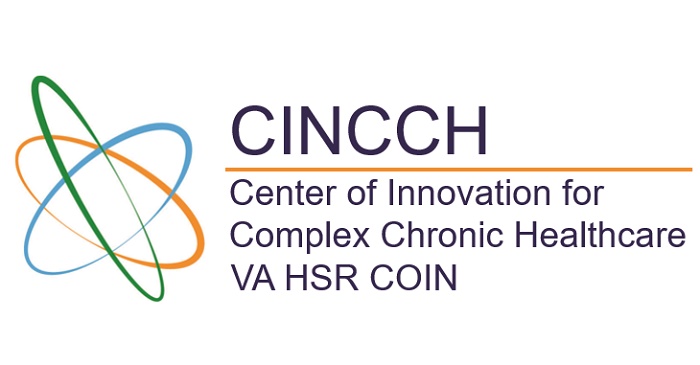
Website: http://www.cmc3.research.va.gov/
CINCCH’s Mission: By engaging Veterans and VA partners in high-quality, innovative research and through the training of health systems researchers, we seek to improve healthcare delivery and outcomes for Veterans with complex chronic conditions, needs, and life circumstances.
Research at this Center focuses on:
Additional research and implementation efforts to enhance quality of care, safety, and value for Veterans center around infectious disease and the stewardship of antibiotics and opioids.
Data to Improve Veterans’ Outcomes (DIVO) in SCI/D
Multiple Principal Investigators: Kevin Stroupe, PhD; Jennifer Sippel, PhD
Goals of this project include developing and improving the use of data, standardized across VHA Spinal Cord Injury and Disorders (SCI/D) Centers; enhancing the care and experience of Veterans with SCI/D; promoting a learning healthcare system; and supporting innovations in care through research. Investigators will accomplish this by enhancing an existing longitudinal registry of Veterans with SCI/D. Using health services research methods, including data and measurement science and mixed-methods approaches, investigators will incorporate routinely collected data as well as patient-reported data into the registry and use the registry to assess patients’ outcomes.
CINCCH investigators are multiple PIs (MPI) of the Evidence to Policy Center for Veterans (EPEC-Vet), a Quality Enhancement Research Initiative (QUERI) Program whose purpose is to assist VA operations offices by conducting rigorous and timely evaluations of high priority VA programs and policies. A CINCCH investigator is also MPI of Combating Antimicrobial Resistance through Rapid Implementation of Available Guidelines and Evidence II (CARRIAGE II), a QUERI Program focused on reducing the spread of multi-drug resistant infections in the VA through the implementation of evidence-based strategies.
Each COIN works closely with operational partners throughout the VA healthcare system. CINCCH's partners include: